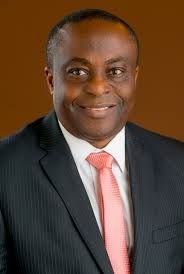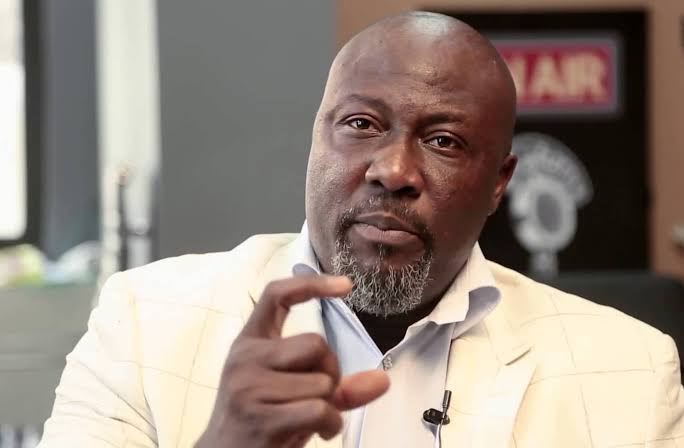Our attention has been drawn to an article titled: “Judiciary and the Future of Our Democracy… Judges Like Catholic Priests”, By Eddy Odivwri, published in Thisday Newspaper of December 25, 2020.
This write-up by Mr. Eddy Odivwri was excellent, almost to the point of being seminal in its critical appraisal of our judiciary and the future of our democracy, until the interloping and completely out of kilter imposition of the section sub-headed “Wike and Judicial Conjugation”, in which Odivwri attempted what can best be described as a totally jaundiced interpretation of the healthy relationship between Governor Nyesom Wike and the Rivers State Judiciary.
For starters, the title, “Wike and Judicial Conjunction” tends to suggest a kind of dubious marital connivance between the Rivers State Governor and the State’s Judiciary, but what Odivwri cleverly and deliberately omits is the fact that Governor Nyesom Wike himself is a lawyer and a member of the Nigerian Body of Benchers. His relationship with the Judiciary is professional and clearly defined.
In other words, Governor Wike’s inclination to the promotion of equity and the existential welfare and well being for officials on the bench and indeed across the entire judicial/ legal community flows from his proud professional calling as a lawyer and a Life Bencher.
Again, one is taken aback by Odivwri’s description of the relationship as “the brazen romance between the Governor of Rivers State, Nyesom Wike and his State’s Judicial officers.”
It is indeed quite amazing that a journalist with some years of experience should exhibit such reckless flippancy, when an elementary research would have offered a more discretionary and less sacarstic translation, unless of course, Mr. Odivwri, like many present day Wike commentators, has also chosen to be typically economical with the truth and facts.
Be that as it may, it behoves any trite response to Mr. Odivwri’s obviously warped observations concerning Governor Wike’s relationship with the Rivers Judiciary, to set the records straight by preseting the honest picture of the situation between the Rivers State Government and the Judiciary in the State before Governor Wike assumed office on May 29, 2015.
Professor Zacchaeus Adangor aptly captures the situation succinctly in his paper: “Depoliticising the Appointment of the Chief Judge of A State in Nigeria: Lessons From the Crisis Over the Appointment of the Chief Judge of Rivers State of Nigeria”, where he wrote thus: “Rivers State of Nigeria was effectively without an incumbent Chief Judge from 20th August, 2013 (when the immediate past Chief Judge of the State, Hon. Justice Iche N. Ndu, retired from service) up until the 31st day of May, 2015.”
In summary, the crisis in the Rivers Judiciary was occasioned by the insistence of former Rivers Governor, Rt. Hon. Chibuike Amaechi that he had the prerogative to reject the recommendation of the National Judicial Council (NJC) who wanted to appoint Hon. Justice Daisy W. Okocha of the High Court of Rivers State, as the Chief Judge of Rivers State, instead of his preferred choice, Justice Peter Agumagu.
A judgment delivered by Hon. Justice Lambo Akanbi, J., of the Federal High Court, Port Harcourt in favour of the Rivers State Government, set aside the recommendation of the NJC to appoint Hon. Justice Daisy Okocha and acting on that ruling the Amaechi administration appointed and swore in Hon. Justice P. N. C. Agumagu, on 18th March, 2014 without the recommendation of the NJC.
Expectedly, the NJC not only refused to recognize the appointment of Hon. Justice P.N.C. Agumagu as Chief Judge of Rivers State but also suspended him from performing the functions of his office as a judicial officer for accepting his purported appointment as Chief Judge of Rivers State without the prior recommendation of the NJC.
On 3rd June, 2014 the NJC appointed Hon. Justice Daisy Okocha, as the “Administrative Judge” of the High Court of Rivers State with a mandate to assign cases to all the Judges of the High Court of Rivers State and to perform other related administrative functions necessary to prevent the complete collapse of the operation of the judiciary in the State.
However, the Rivers State Government quickly reacted to the said appointment by issuing a circular directing all staff of the Rivers State Judiciary to refrain from taking any instructions from or dealing with Hon. Justice Daisy Okocha, in her capacity as the Administrative Judge of the High Court of Rivers State. The directive was coupled with a clear threat that any staff found guilty of its violation would be dismissed from the service of the Rivers State Judiciary.
In the confusion that followed these conflicting actions by the NJC and the Rivers Government, members of the Judiciary Staff Union of Nigeria (JUSUN) Rivers State Branch declared an indefinite strike action on 9th June, 2014 thus completely grinding the administration of justice throughout Rivers State to a halt and depriving litigants of access to the court of justice.
The needless crisis and the complete disruption of the administration of justice in Rivers State which was unprecedented in history continued until the Hon. Justice Daisy Okocha was appointed and sworn in as the Acting Chief Judge of Rivers State on 1st day of June, 2015 by Governor Wike.
On May 29, 2015, Governor Nyesom Wike while delivering his first term inaugural speech, appointed Justice Daisy Okocha as acting Chief Judge of the State. The Rivers Governor who announced the appointment shortly after he took the oath of office administered by the Chief Judge of Bayelsa state, Justice Kate Abiri at the Yakubu Gowon Stadium, Port Harcourt said it was unfortunate that the crisis in the judiciary could linger on for close to a year.
Governor Wike also appointed Justice Christy Gabriel Nwankwo as Acting President, Rivers State Customary Court of Appeal.
“We had severally condemned the prolonged absence of a State Chief Judge and closure of our courts and promised that these issues will not remain unresolved beyond a day after today.
“Therefore, in fulfillment of our promise to reopen our courts and restore normalcy to the State’s judiciary, I hereby, in exercise of my powers under section 271(4) of the 1999 Constitution, as amended, appoint the most senior High Court Judge in Rivers State Judiciary, the Honourable Justice Daisy Okocha as the Acting Chief Judge of Rivers State.
“Her Lordship will be sworn in on Monday 1st June 2015, after which she will be required to immediately terminate the dark moments of our ignoble judicial history by reopening the courts for business. Under our watch, never again will the doors to justice be deliberately and punitively shut against the people of Rivers State.
“In the same vein, I hereby, in exercise of the powers conferred upon me by section 281 (4) of the Constitution of the Federal Republic of Nigeria 1999, as amended, appoint the Honourable Justice Christy Gabriel-Nwankwo, as the Acting President of the Rivers State Customary Court of Appeal following the indefinite suspension by the National Judicial Council (NJC) of the holder of that office. Justice Gabriel Nwankwo also be sworn in on Monday 1st June 2015.”, Governor Wike had declared.
It is germane at this juncture to state clearly that while many social commentators and columnists have mischievously and dubiously coloured the relationship between Governor Wike and the Rivers judiciary in selective instances, the fact remains that no Rivers Governor has arguably done more to position the legal profession in its pride of place and protect the judiciary by entrenching an enabling environment for judicial officers in the State to operate independently without fear of any intimidation or compromise.
Right from his first term, Governor Wike has committed himself to the improvement of the processes and facilities for the advancement of the Administration of Justice. His commitment is premised on the fact that economic development, security and social welfare are tied to a vibrant justice system.
Beyond the much overblown narrative of the purchase of vehicles for judges which has provided topical cannon fodder for both seasoned and pedestrian commentators, Governor Wike’s administration has since inception embarked on a holistic welfare and development initiative for the judicial sector within the legitimate purview of a State Government’s contributions to the third estate of the realm.
Over the last five years, Governor Wike constructed the Federal High Court, Port Harcourt, reconstructed the Court of Appeal, Port Harcourt Division, and built the National Industrial Court in Port Harcourt. He had released funding promptly and regularly to address and offset recurring and outstanding emoluments, established the Rivers State Multi-door Court House and the Family Court.
His administration built a new secretariat complex for the Port Harcourt branch of the NBA and pledged to build two new hostels that will accommodate not less than 1,800 Law Students and a 500 capacity Auditorium for the Nigerian Law School, Yenagoa, amongst others.
Governor Wike himself has never hidden his intention to ensure the independence of the judiciary and implement initiatives that would make the judiciary to assert itself independently.
His commitment to the welfare of judges and judicial officers of Rivers extraction as well as those working in the state, has been unwavering and this was once again captured in September 2020, during the commissioning of 20 owner occupier duplexes built by Rivers Government for Judges of Rivers origin serving in the State and Federal Judiciaries.
READ ALSO: Liverpool Won’t Force Salah To Stay, Says Klopp
Governor Wike declared at that ceremony that Rivers State would end the era Judges retire without their own home.
He said, “One arm of government that is key in the fight against corruption is the judiciary. Judges cannot fight corruption when they are not provided with the basic facilities. Given the constitutional restriction on legal practice, post legal service years could be miserable for judges who were unable to buy or build their own homes before leaving the service.
“With our policy, the State now bears the full responsibility to providing befitting accommodation for all judicial officers of Rivers State origin beyond their service years for life. The policy covers all former Chief Judges, Presidents of Customary Courts of Appeal including Justice Peter Agumagu. All retired Judges in service when the policy was made. Current Chief Judge of the State will have her accommodation built before retirement in May, 2021.”
“I cannot think of any State Government with similar welfare scheme we have made. This will have a profound and positive impact on judicial officers. We have moved our Judiciary from the valley of neglect to an enviable hilltop of independence, capacity, and effectiveness,” he stated.
The Chief Justice of the Federation(CJN) Justice Mahmud Muhammad was to capture Governor Wike’s intention clearly. Represented by Justice Mary Odili of the Supreme Court, he noted that Judges would be more confident to dispense justice if they have good shelter and welfare.
“Lagos and Rivers States rank among the most litigious States. The Implication is that manpower and materials are perennially stretched far beyond limit to attend to the large number of cases filed daily. That explains the enormity of work before Judges. A good car, shelter and good welfare package are some of those things that can serve as magic wand to bring out the best from them.
“Whenever we deliberately or inadvertently toy with the welfare of judicial officers, we are unconsciously inflicting a debilitating wound on the conscience of the nation,” he noted.
President, Court of Appeal, Justice Monica Dongban-Mensem, in her comments said provision of the accommodation for the judicial officers would reduce the challenges that affect effective administration and dispensation of justice. She urged the justices to reciprocate Wike’s gesture by dispensing justice without favour.
Olumide Akpata, President, Nigerian Bar Association (NBA) in his goodwill message, commended Governor Wike for his vision and foresight aimed at promoting the administration of justice and rule of law and Theo Osanakpo, speaking on behalf of the Body of Senior Advocates of Nigeria, said the action of the Rivers Governor would provide opportunity for optimal performance by the judges of the Court of Appeal.
Governor Wike was to express the same sentiments again during the swearing-in of two new High Court judges; Justice Ben-Whyte Opufaa and Justice Gbasam Okogbule as recently as Thursday, December 24, 2020.
“This country cannot move forward if the judiciary does not come out to say we must be firm to do our work. Whatever you believe that is right do it. It doesn’t matter who is involved. Don’t be intimidated by the federal government,” he charged.
Indeed, Governor Nyesom Wike, in addition to providing the basic welfare and standardized infrastructural amenities for judges and the judicial community, has also been a staunch advocate for maintaining and sustaining the sacred guiding principles that define administrative judicial processes and appointments.
It is worthy of note that while some justices have been victims of a peculiar gender marginalization, the case of the incumbent Chief Judge of the High Court of Justice in Rivers State, Justice Adama Lamikanra, has been hailed as one the finest decisions in Nigeria’s judiciary.
For the records, Justice Lamikanra is from Edo State just as her husband. However, she started her service in Rivers State and was in due season appointed a judge. However, when a vacancy arose in the office of the Chief Judge and her name was mentioned sometime around 2015, the primordial biases of ethnicity and gender arose.
There were some in Rivers State who felt that an Edo State indigene married to an Edo man should not be made Chief Judge of the State, but Governor Wike would have none of that and as he settled in the office of Governor in his first term, he promptly dismissed the prejudices levelled against Justice Lamikanra who had worked in the Rivers State judiciary for most of her career.
She was appointed Acting Rivers State Chief Judge on January 15, 2016, following the retirement of Justice Daisy Okocha and sworn-in as substantive Chief Judge on March 8, 2016, on the recommendation of the NJC and the approval of the Rivers State House of Assembly, for her to occupy the State’s judiciary top position.
The citing of these instances have become necessary to correct the erroneous impression which the likes of Mr. Odivwri peddle, that the impressive effort to build a mutual and professionally symbiotic relationship between the executive and judiciary, towards achieveng the prompt and proper dispensation of justice as well as delivering good governance to Rivers people, could be misinterpreted with snide and obviously ill-advised innuendos that diminish the craft and intelligence of writers like Eddy Odivwri.
The glaring poverty of his argument is underscored by the fact that, while this commitment to secure the welfare of judges has now become a state policy that will outlive Governor Wike’s tenure as Governor of Rivers State, the real possibility that some of his futuristic legal engagements may not even be adjudicated by
Rivers judges, exists. After all, the Governor is in his second and final tenure now and it is really not so difficult to fathom if there is any other ‘political fate’ that
the judges would be compelled to determine in his favour in the state, going forward.
Unless there is something in the political future of Governor Wike which only Mr. Odivwri and his co-travellers know that we do not know.
*Nsirim is the Commissioner for Information and Communications, Rivers State










